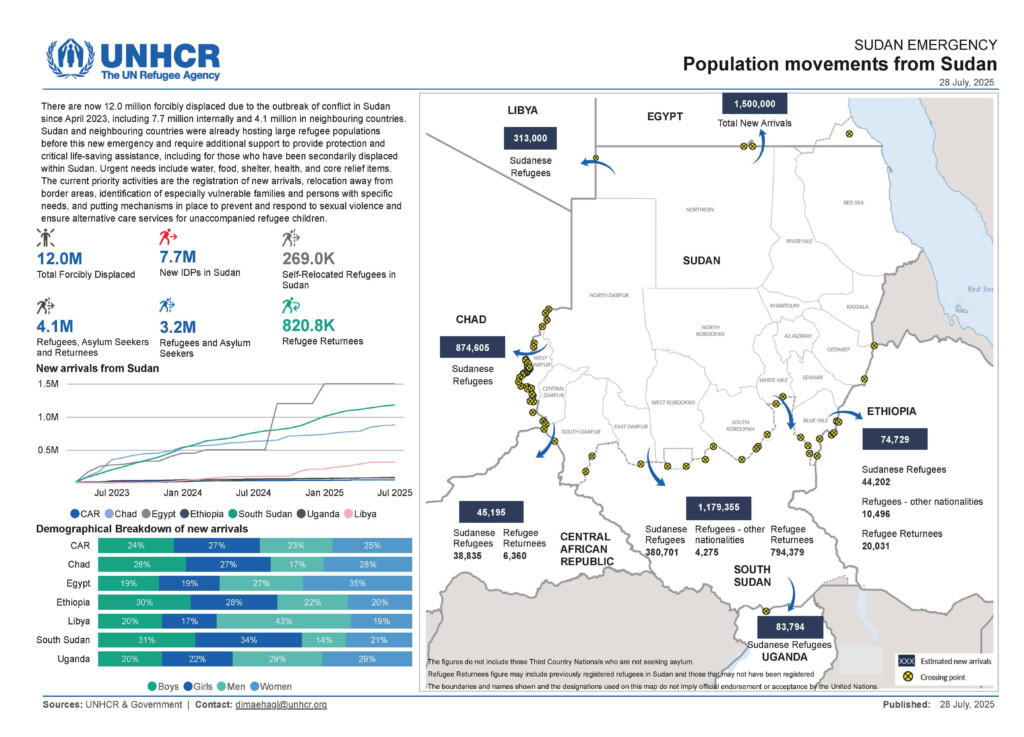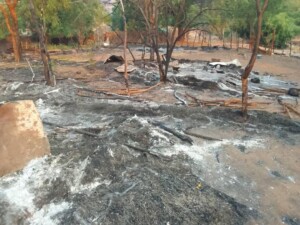World Day Against Trafficking in Persons – millions vulnerable in Sudan

The ongoing war and humanitarian catastrophe in Sudan lays millions of innocent civilians vulnerable to exploitation by human traffickers. On the World Day Against Trafficking In Persons, observed on July 30, under the theme “Human trafficking is Organized Crime – End the Exploitation”, Sudan stands as a tragedy where protracted war, forced mass displacement, and organised crime intersect. “This is a crisis of humanity, of safety, and of childhood. The lives and futures of millions of innocent civilians… hang in the balance.”, said UNHCR spokesperson Eujin Byun during a June 2025 briefing, underscoring the scale and urgency of the crisis.
In 2023, the Mixed Migration Centre warned that “If the conflict drags on in Sudan and further fragments, we are likely to see an increase in arbitrary detention for ransom as well as trafficking in persons”. This became a reality eventually in the UNHCR’s 2024 “Death in the Desert” data visualisation, based on interviews with more than 31,000 refugees and migrants, documented the most commonly reported dangers along migration routes from Sudan, including “kidnapping for ransom, trafficking, extortion, rape, robbery, trafficking, organ removal, detention and expulsion.”
As of June 2025, UNHCR reports that there are approximately 7.67 million internally displaced people in Sudan and more than 4.7 million refugees and asylum seekers who have fled to neighbouring countries such as Chad, Egypt, Ethiopia, and South Sudan. These staggering figures reflect the scale of migration and heightened risk of exploitation, coercion and abuse along irregular and unprotected routes. “The sea was rough, and it was a very difficult trip, but we were exhausted by all that we endured in Libya. We had no other choice, either we cross or die,” said Bahr el‑Din Yakoub, a 25‑year‑old Sudanese refugee who reached Europe via smuggling routes. This reiterates the urgency of this year’s UNODC-led campaign theme, which emphasises “the vital role of law enforcement and the criminal justice system in dismantling organized trafficking networks while ensuring a victim-centred approach.”,
Displacement is Sudan’s dangerous vulnerability. Women and children in particular bear the brunt of the war and face higher risks than any other group, experiencing forced labour, sexual exploitation and organ removal. These dangers are especially prevalent along the migration routes through Libya and Egypt. This is reflected in the 2025 4Mi INFOGRAPHIC by the Migration Centre, where “28.9 per cent of Sudanese women respondents interviewed in Tunisia reported having experienced trafficking or exploitation during their journey.”.
This failure of anti-trafficking systems in Sudan is confirmed in the 2024 US Department of State of the Trafficking in Persons Report, which placed Sudan in Tier 3,stating: “Sudan does not meet the minimum standards for the elimination of trafficking and is not making significant efforts to do so.”. The report further highlights “Authorities continued to conflate human trafficking, migrant smuggling, and kidnapping for ransom, which impeded accurate assessment for Sudan’s anti-trafficking law enforcement data.”.
Without the sustained international attention and intervention, including the prosecution of traffickers, protection for displaced populations, cross-border cooperation and investment in survivor-focused health and psychosocial support services, Sudan risks continuing down a path where trafficking will not simply remain a byproduct of war, but one of its most damaging and lasting consequences.
Human trafficking in Sudan has intensified dramatically since the outbreak of conflict in April 2023, according to a report in June by the African Centre for Justice and Peace Studies (ACJPS). The report, “Human Trafficking in Sudan: Roots, Context, and Current Challenges,” describes the crisis as “a humanitarian crisis and an organised crime” driven by “violence, fragile security, poverty, political conflict, and social divisions.”












 and then
and then